FOCUS
Argentina
-
New Argentine Cinema, The Third Wave
Argentine cinema is a permanent fixture on the world map of ever-interesting creative hubs, even though its generational breakthrough happens "only" every few decades. This is, of course, a European perception, rightly self-assured on account of its constant presence on the festival circuit, which remains an all but exclusive channel for getting an insight into the most vital (as well as strong and varied as regards production) South American cinema. In other words, you will not find Argentina's film d'auteur in regular European cinema distribution.
Argentina's new wave, the second one detected throughout Liffe's existence during the country’s worst economic crisis in the late nineties, did not only bring a new artistic sensibility, urban realism punctuated by the pessimistic poetics of the working classes, but also washed up the first larger generation of female directors to compete on an equal footing with the internationally renowned Pablo Trapero, Diego Lerman, Martín Rejtman or Lisander Alonso. As a new generation of Argentine directors evolved, so did the role of women pursuing a filmmaking career. At the time, the National Film School and the main source of austerely allocated state funds, the Buenos Aires-based Instituto Nacional de Cinematografia y Artes Audiovisuales, generated many female directors who played an important role in shaping the direction of a new Argentine cinema. The debut features of Lucrecia Martel, Paula Hernandez, Julia Solomonoff, Celina Murga, Ana Poliak and Ines de Oliveira Caesar put these filmmakers on the world festival map; they followed Maria Luisa Bemberg, who embarked on her creative career in the early seventies, but only after fulfilling her traditional role as daughter, wife and mother. In her works, as a self-taught filmmaker, she fought against misogyny and stereotypical perceptions of women, and wanted viewers not only to identify themselves with, but also to derive moral support from her protagonists.
There was a particular characteristic that set the so-called second generation of Argentine male and female directors radically apart from their filmmaking "forefathers" and "foremothers": their rejection of the political militancy typical of the older generation of directors and intellectuals, including Fernando Birri, Octavio Getino or Fernando Solanas is so unmistakable that it deserves special attention. In the seventies (alongside many Cuban directors), these men conceptualized the role and ideological stance of the new Latin American cinema, for example, identifying film as "a medium for creating an illusion of reality that does not exist and encourages viewers to indulge in reveries", while believing that "film revolutionizes, arouses emotions, communicates and shows unknown realities«. The social and political consciousness of the second generation of filmmakers was no longer embedded in the form of "lecturing" or "moralizing" about injustice and inequality; they preferred to address these issues in more subtle yet no less illustrative forms of expression.
The structure of Argentine cinema, traditionally anchored in the commercial logic of the entertainment industry, is constantly changing. At the turn of the century, the second generation emerged against the background of a profound cultural transformation; The young generation relied on a rigorous realistic disposition and addressed the problem of Argentine youth and society in general. But it was far from a mere representation of the grey quotidian existence and the hopeless fate of the "little man" in the grip of an unprecedented economic collapse. Argentine cinema sought different expressive outlets, including ironic and playful ways of vividly conveying fundamentally tragic issues to the viewer. This generation rejected the genre, whilst having no delusions about creating masterpieces.
But after a considerable lapse of time some filmmakers of the "third generation", which we are presenting in an abridged edition this year, seem to be producing masterpieces. It is the norm for every new wave to break with the ideas of their predecessors and put themselves in decisive opposition. This is obvious with this group of directors, which cannot be viewed as a generationally coherent clique of filmmakers, as some were already active during the previous wave, and others are just starting out on their professional careers. But almost every one of them shows an innate tendency towards playing with genre rules (especially with crime film or thriller) and formal deviations. Mariano Llinas, perhaps the most distinctive director of the newer generation, is not included in this overview, but is followed with great enthusiasm by Rodrigo Moreno (The Delinquents), María Alché and Benjamín Naishtat (Puan), Daniel Casabé and Edgardo Dieleke (Southern Storm) and Laura Citarella (Trenque Lauquen), who regularly include elements of crime drama, absurdist comedy, even melodrama and romantic film into their comprehensively formulated and provocatively playful narratives, full of twists and surprises.
Theirs are still mostly apolitical films, it is only the charming academic comedy Puan that contains slight traces of actual realities (e.g. the rise of right-wing populism). The only representative of traditional film narration in this year's Focus, Daniela Goggi’s political thriller (Kidnapped) discusses Argentina's recent history and eloquently underscores the long-held axiom about the ambiguity, elusiveness and fragility of democracy.
Simon Popek






